Updated October 6, 2023
In 1493 Christopher Columbus landed on what would later become St Croix, US Virgin Islands at Salt River Bay changing the course of the island’s history and setting the stage for 7 European Flags to fly over the island. Columbus landing on St Croix is the only place on US soil where he actually set foot. And, notably, it was the location of the first violent altercation between the Old World and the New. Salt River Bay National Historical Park and Ecological Preserve marks an area of incredible history not only for the island but for the world in general.
The prehistoric site at Salt River is one of the most significant in the whole of the Virgin Islands and tells an important story of the past.
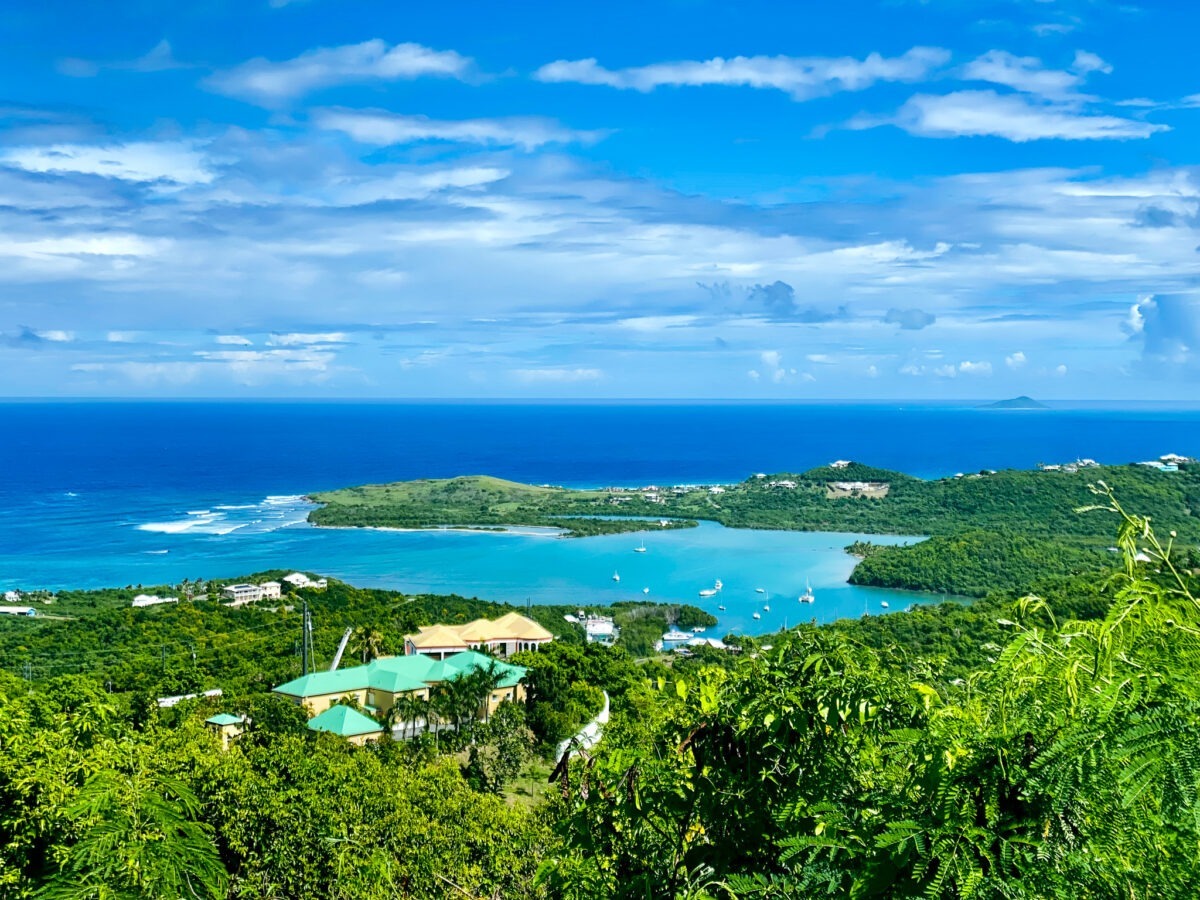
The Indigenous Peoples of St Croix
For thousands of years, Arawak (Igneri and Taino) and Carib Indians inhabited the area now known as Salt River Bay/Columbus Landing. Archaeological research starting from 1880 shows that the land here was a major religious and cultural area and had long-term permanent settlements. Archeological evidence found dates back at least 4,500 years.
Arawak is a broad term that refers to the indigenous peoples of South America and the Caribbean who spoke a common language and had a shared culture. Taino is more commonly used for the “Island Arawaks” which stretched from the Greater Antilles up through the Lesser Antilles (where St Croix can be found) as opposed to the mainland Arawaks.
These first inhabitants of the Caribbean Islands had a rich culture and history and previous excavations at Salt River revealed the only ceremonial Ball Court found in the Caribbean here on St Croix, lending to its historical significance. The area was thriving with indigenous peoples cultivating manioc, soursop, papaya, guava, sapote, yellow sapote, guava, sapodilla, and avocado and fishing in the locally rich waters.
They were skilled artisans with a pottery-making culture that was used for practical purposes and to represent their views of the three realms of the cosmos: the celestial, Earth, and subterranean land and water. Today, we continue to use their words in our everyday lives. These include hammock, hurricane, tobacco, barbecue, and canoe.
Salt River Bay Historic Park and Ecological Preserve
In 1992, Congress declared the area Salt River Bay National Historic Park and Ecological Preserve as part of the National Park System. The designation works to protect the rich cultural story and the delicate mangrove ecosystem and its threatened and endangered species.
Read more detail about the indigenous peoples of Salt River: Archeological Investigations at Salt River Bay National Historical Park and Ecological Preserve
Learn more about Salt River Bay National Historic Park and Ecological Preserve and view the NPS map.
Columbus and the First Battle in the New World
On November 14, 1493, Columbus with his fleet of 17 ships landed on St Croix in search of freshwater and local guides to “help” them along the rest of their journey. A small party ventured onto the island and found a sparsely inhabited village. According to historic records, they found Taino Indians who said they’d been captured by Caribs taking over the island. (note: there is still debate as to who these peoples actually were – Taino vs. Carib),
Columbus and his crew were en route taking the villagers back to their ship when they encountered a canoe with several Carib men and women. A skirmish ensued with Columbus’ men firing on the Indians and the Indians retaliating with arrows. The area where it took place, just outside the bay to the Eastern Point is known as “Cape of the Arrows” to this day. Each side lost a man to the fight. At the time of this encounter, it is estimated that there were 20 Indian villages on St Croix with a total population of approximately 1,200. Columbus “claimed” the island for Spain calling it Santa Cruz.
Indigenous People’s Day
Columbus and his crew wrote detailed accounts of their exploits of the islands’ natural resources and their cruel and brutal treatment of the native peoples. Not the least of which is the description of part of the encounter on St Croix. Written by Columbus’ aristocratic shipmate Michele de CuneoIt, it details the murder of a captured “Cannibal” and then the repeated rape of an indigenous woman kidnapped from St Croix – you can read that here [trigger warning]. For this reason, I personally refuse to refer to the holiday as anything other than Indigenous People’s Day.
For the next 100 years, the Spanish battled the local Taino and Carib Indians close to annihilation. By the early 1600s, the island of Santa Cruz was deserted.
Reclaiming the Past
Nowadays, the Virgin Islands celebrate Virgin Islands/Puerto Rico Friendship Day in lieu of Columbus Day owing to the historic connections between the peoples of St Croix and Puerto Rico that date back to long before European contact.
Salt River National Historical Park and Ecological Preserve is now a part of the US National Park system and is a wonderfully serene spot to explore the natural wonders of our island.
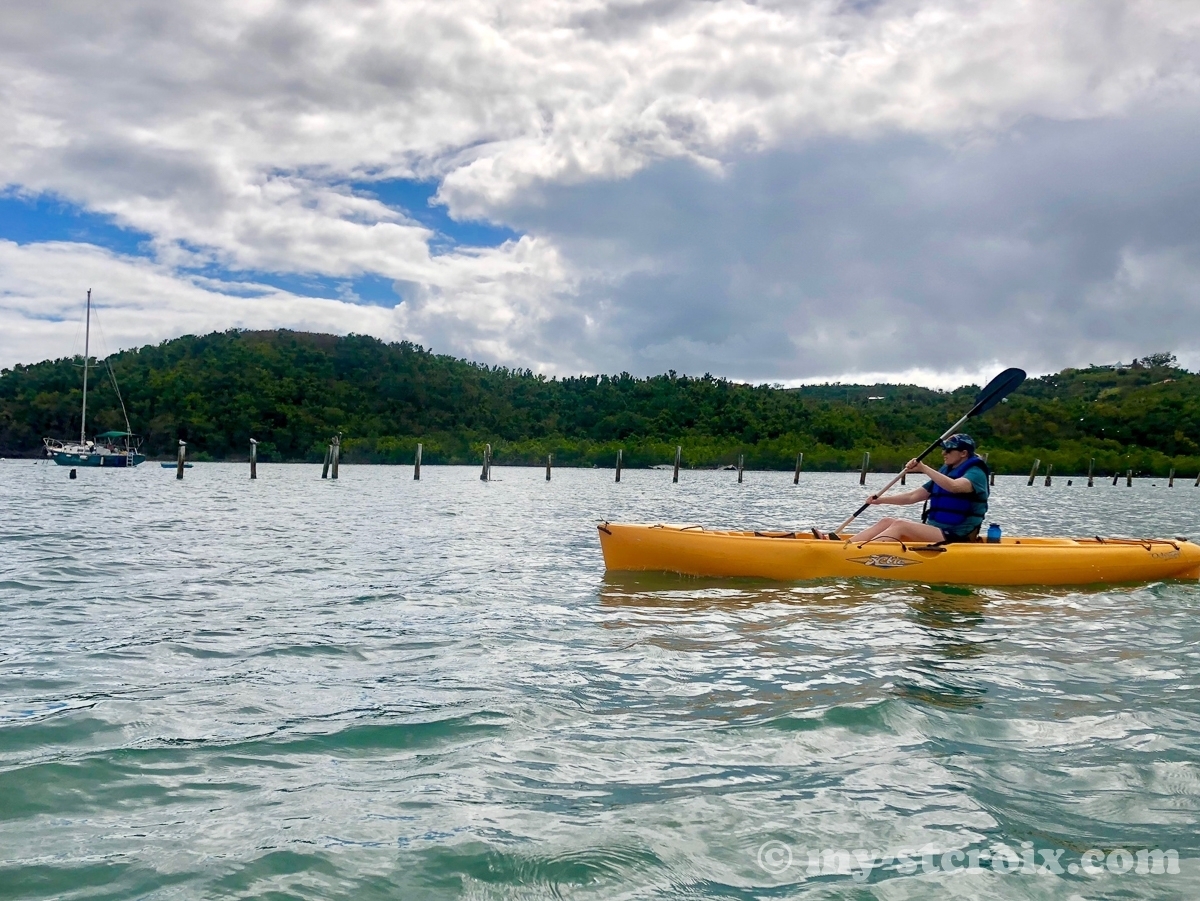
History and nature buffs can book a kayak tour to explore the mangrove coves and learn about the history of Columbus Cove.
SCUBA divers can explore the underwater canyons in Salt River Bay teeming with life. In recent years, tech divers have explored the canyons to depths of 300 feet+.
Take an evening kayak tour of Salt River and experience the wonders of the Bio Bay – a smaller inlet of Salt River Bay that teems with bioluminescent dinoflagellates that light up the water like Avatar!
Columbus Landing St Croix
The beach at Columbus Landing St Croix is quiet and rarely busy. It offers great swimming and has a reef just offshore for snorkeling. There’s little to no shade and no facilities, so be sure to bring a cooler and some shade, and most importantly, practice “Carry in, Carry out”.
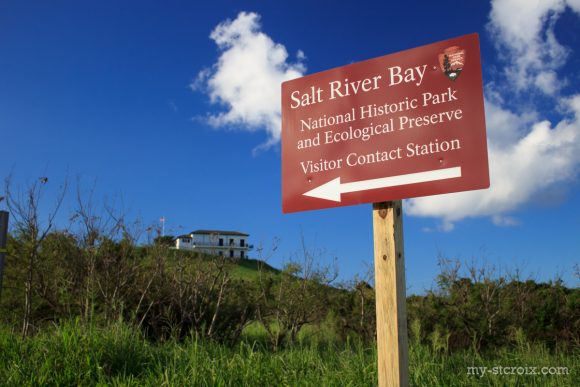
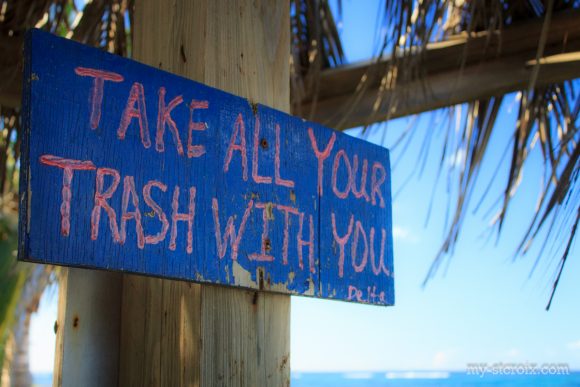
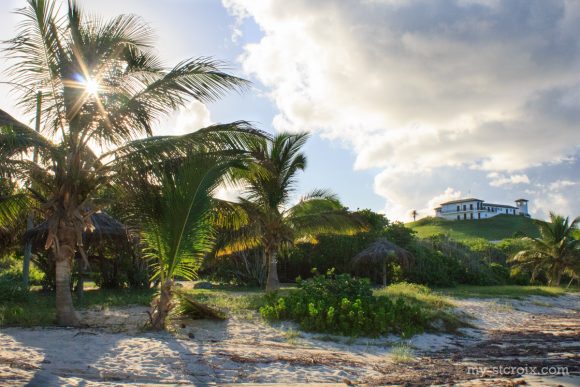
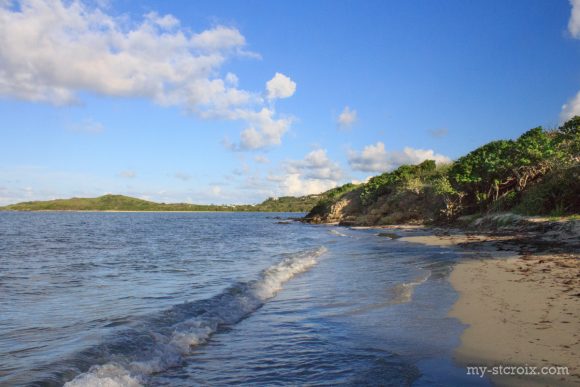
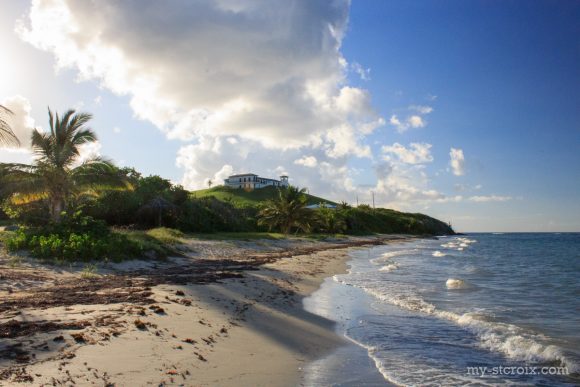
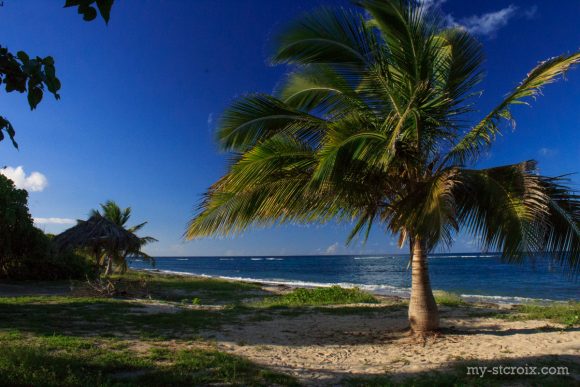
Salt River and Columbus Landing St Croix are just one more reason to get out and explore our beautiful island while you are here!


So who were the indigenous people? The Igneri, Taino or Carib people’s, or importantly someone else? The history of the world, going back several hundreds of thousands of years shows both that people’s were always migrating and the tribal warfare was both brutal and that the victorious always record the history, in a positive light. The US purchase of the islands from Denmark in 1917 was entirely peaceful and that no attempt has been made to exploit the territory. Just the opposite, the on going and sizable investments consistently made by the USA have provided opportunities that never would have happened otherwise. While most by modern standards would look poorly on how Columbus treated the natives he encountered, he was clearly a hard man, we cannot dismiss the turning point in Western history that he has come to symbolize. The world would not be the same for what Columbus (or another European of his generation) accomplished. He will always be historically significant, dispute his modern day shortcomings. It’s complex, difficult and unfair to judge people’s actions of 5 centuries ago by modern standards, the world was a very different place.
I agree with you on some points. However, the brutality that Columbus and his crew documented *themselves* is not and was not ok. They documented well many episodes of torture and rape in their own words because they viewed the natives as sub-human. No matter the century, that is never and was never ok.
Acknowledging that he changed the course of the World, yes. Celebrating his brutality, no.
Additionally, it is important to recognize that at the time of the transer to the United States, human beings lived on St Croix, St Thomas, St John and Water Island. Humans who had history but no voice or choice in the sale of the land under their feet. Many who were descended from people who had no choice in getting here as they were victims of the trans-Atlantic slave trade. That history remained in their hearts and minds and continues for many to this day. But, imagine how fresh that still was in 1917. There were still people living who had been enslaved. Many were alive who had been born into chattel slavery.
While I agree 100% that the US Virgin Islands is better off than many Caribbean nations because we are under the US flag, the selling of your “country” with no say in it carries weight and mixed emotions for many of the people who have lived here generationally. It deserves to at least be acknowledged.
Additionally, the way the US viewed and continues to view those who live in the insular Territories can be summed up in the “Insular Cases” ruled on by the Supreme Court which continue to be challenged to this day. US Territories are 100% NOT treated equally, we are still under legal definitions “colonies” like Puerto Rico. I encourage you to take some time to learn about this. This article is a great start.
And this one “Ruling America’s Colonies” by Yale Law:
A colony is “a territory, subordinate in various ways-political, cultural, or economic-to a more developed country. Supreme legislative power and much of the administration rest[s] with the controlling country, which [is] usually of a different ethnic group from the colony.”‘ That the relationship between the
United States and Puerto Rico falls squarely within this definition-and is thus a colonial one-cannot seriously be questioned.’
“If those possessions are inhabited by alien races, differing from us in religion, customs, laws, methods of taxation, and modes of thought, the administration of government and justice, according to Anglo-Saxon principles, may for a time be impossible; and the question at once arises whether large concessions ought not be made for a time, that, ultimately, our own theories may be carried out, and the blessings of a free government under the Constitution extended to them. We decline to hold that there is anything in the Constitution to forbid such action.”
Wish you would send out the information on what is happening before the Friday that it covers.
Thanks
Hi Steven – The weekly email is a courtesy send, but you can check the calendar 24/7 and 365 days a week at http://www.stxcalendar.com to find out what’s happening on the island!